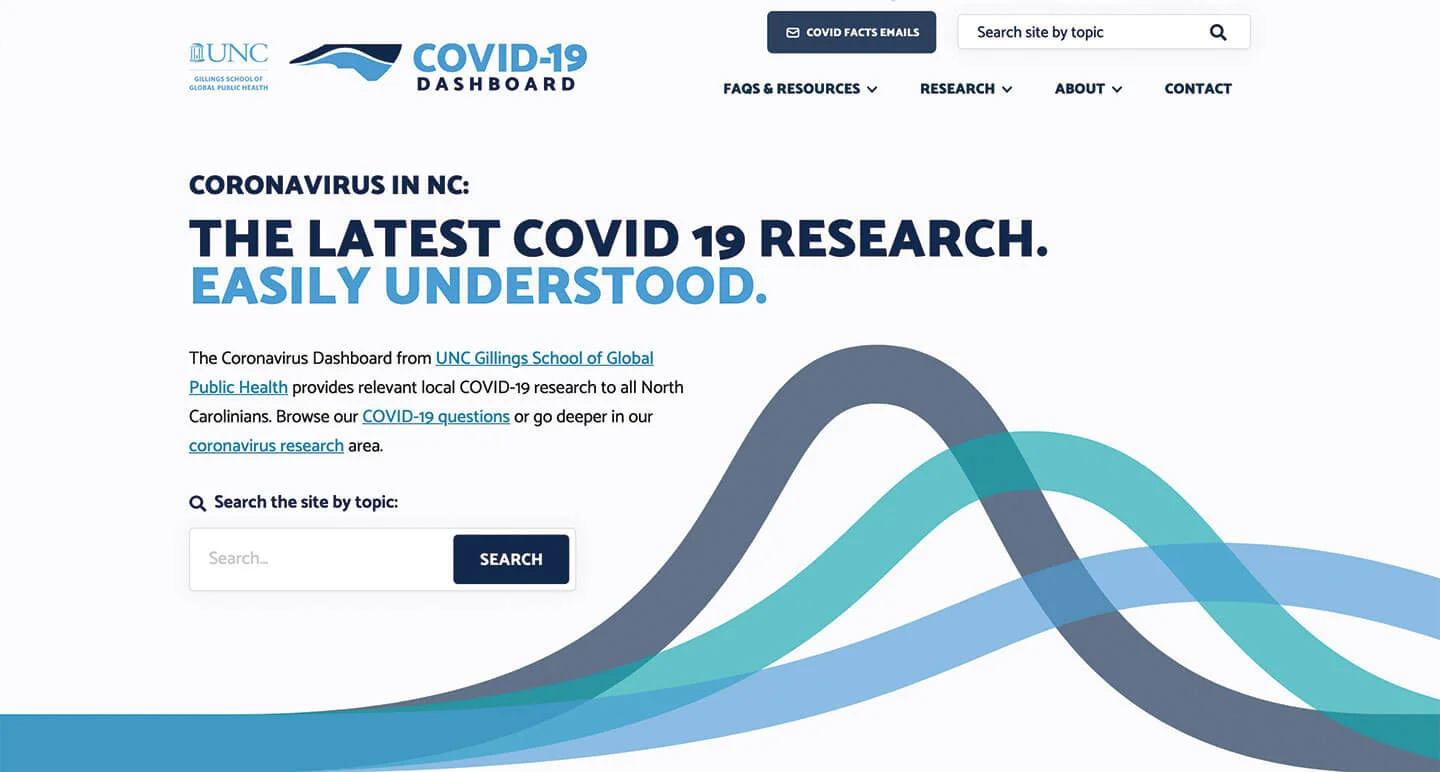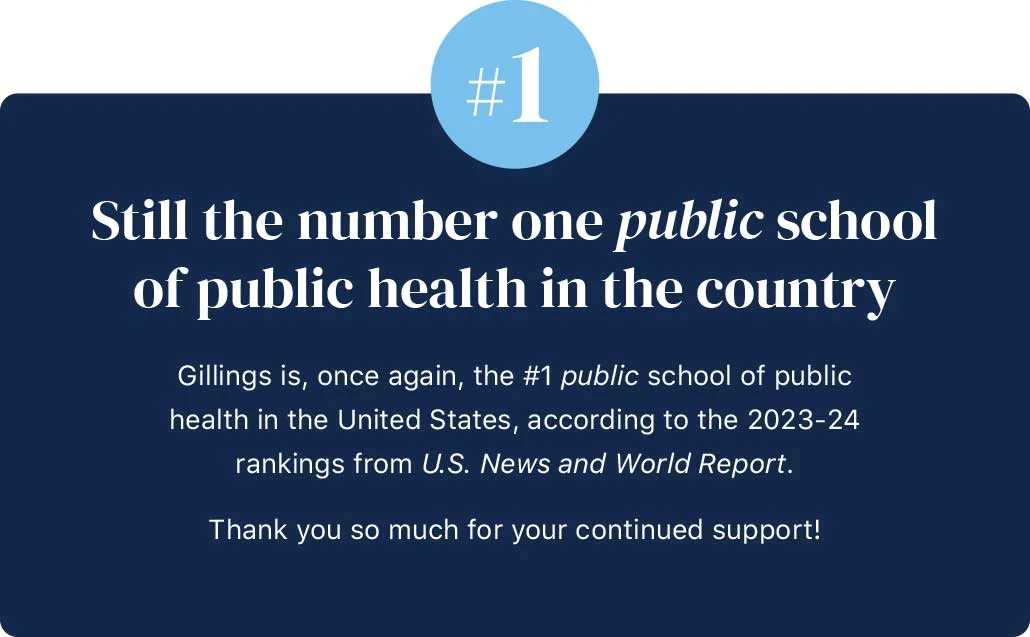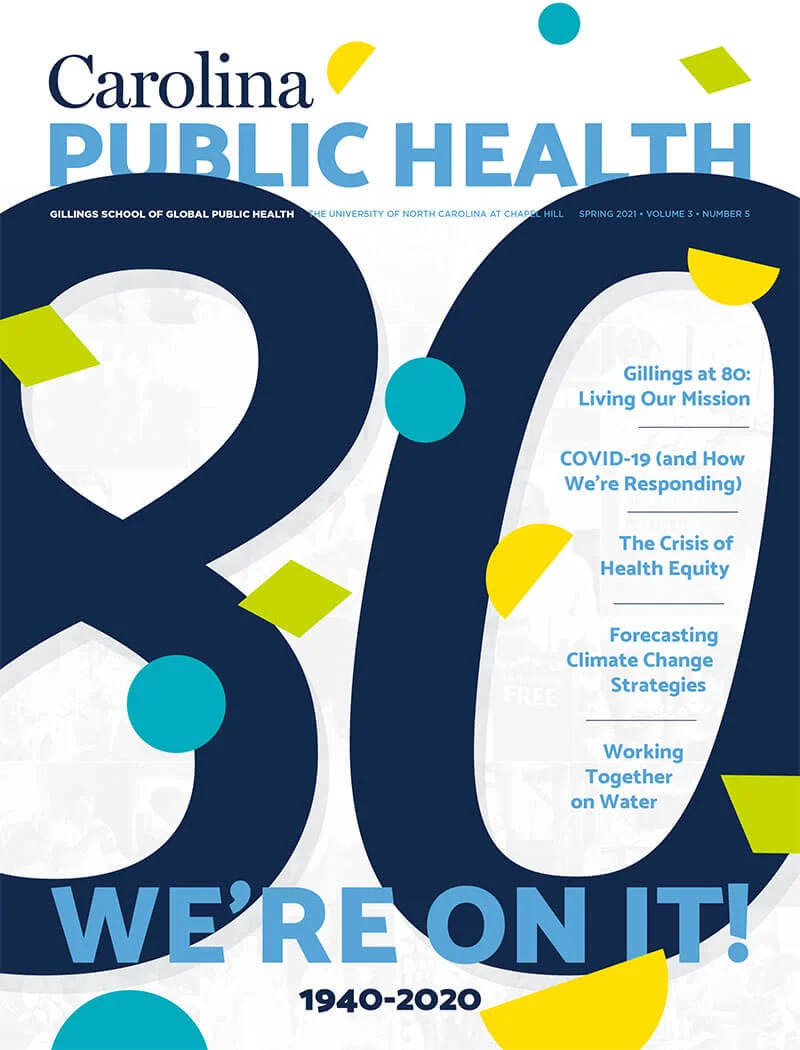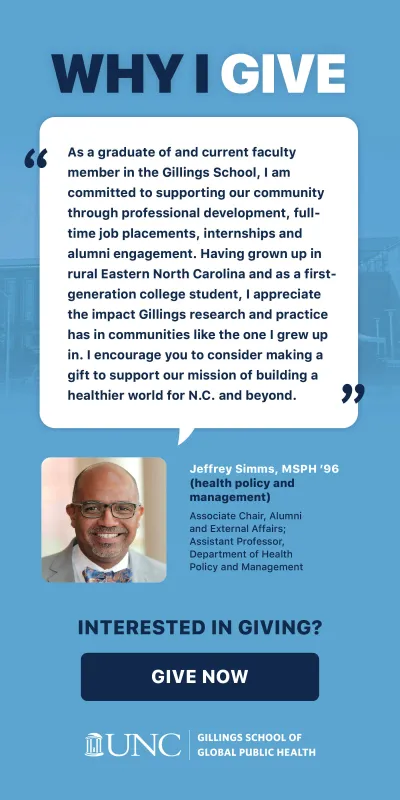Throughout 2020, the COVID-19 pandemic put almost the entire world on lockdown, causing or contributing to millions of deaths globally and upending schools, businesses, families and daily life.
As countries, communities and people worked to slow the coronavirus spread, the pandemic highlighted the importance of public health education, research and practice.
From the very onset of the pandemic, Gillings faculty, students and alumni have been working tirelessly on all fronts during this global health crisis – and will continue to do so as the world continues to navigate life during and after COVID.
This special section highlights some of the many ways the Gillings community is leading in pandemic research and response.
School faculty members across every department, have asked important questions that have helped guide response efforts around the world. They have led studies that fueled the development of treatments and vaccines, helped establish public health guidance intended to minimize risk of exposure to the virus, and served as go-to sources of key information for public health agencies, policymakers, the media and the public. (See the graphic on the next page for all the media outlets where Gillings faculty have been mentioned or interviewed throughout the COVID-19 pandemic). And, as so many educators did, our faculty adapted their coursework and instruction to remote teaching since COVID-19 disrupted the 2020 spring and fall semesters.
Collaboration and teamwork have long been Gillings School values, and our COVID work is no different.
The School also held a special round of Gillings Innovation Lab funding awards to support innovative research projects to accelerate understanding and breakthroughs related to the pandemic. A record 41 teams submitted proposals for consideration – with each department at the Gillings School represented – and seven received awards.
COVID-19 has drawn attention to longstanding healthcare, education, housing and employment inequities in our nation’s communities of color. Equity is a key focus at Gillings, and much of our pandemic work has centered on issues of equity. Faculty, alumni and students have been engaged in efforts to reduce risk and improve outcomes for those who are most vulnerable to COVID exposure, severe illness and death.
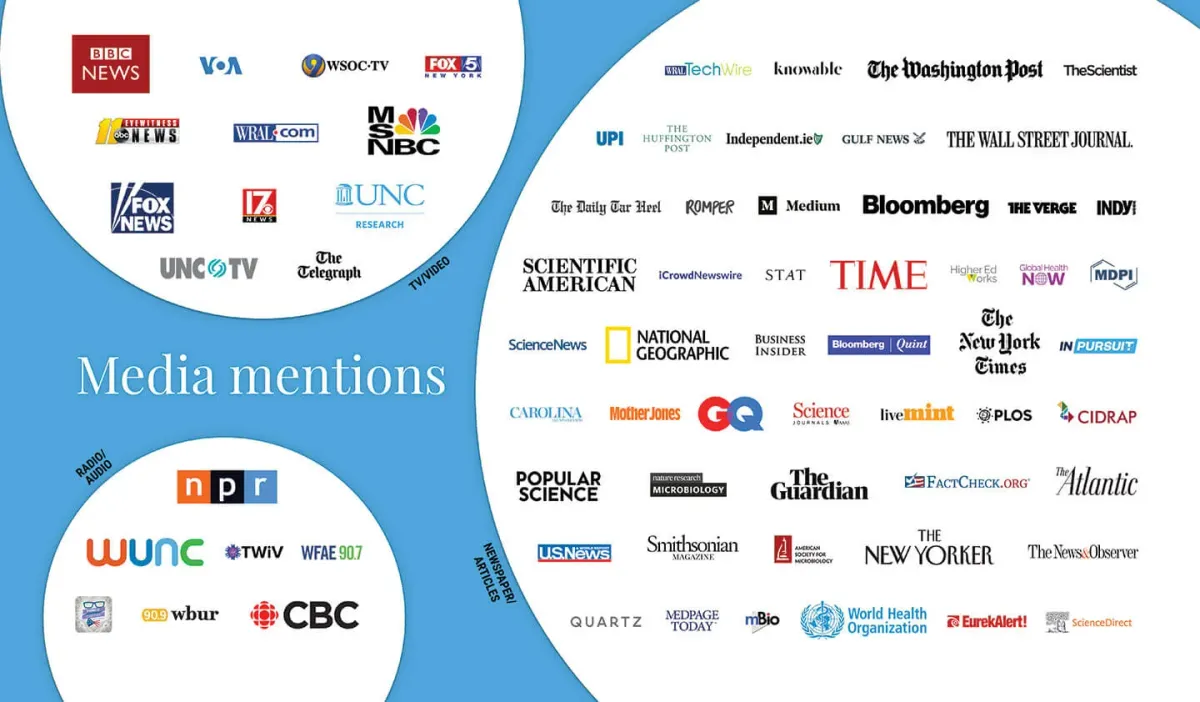
Media outlets where Gillings faculty have been mentioned or interviewed throughout the COVID-19 pandemic.
Around the world, our alumni have been working to promote distancing and other strategies to slow the spread, and they have been helping healthcare providers and communities respond to the pandemic’s substantial health and economic impacts. And students actively engaged in efforts throughout North Carolina to support frontline workers and help keep vulnerable residents safe and healthy.
More than a year since the onset of the pandemic, questions still abound, and we learn new information every day about the virus and its variants. That’s why the School has launched the UNC Gillings COVID-19 Dashboard as a resource center for policy makers, researchers and anyone interested in learning more about COVID-19 in N.C. It includes county-level profiles, interactive data visualizations and updates on the latest scientific findings. Whether you’re a researcher, a healthcare provider or a concerned resident, our goal is to help make important and timely information about COVID-19 more accessible and understandable.
The UNC Gillings COVID-19 Dashboard
Collaboration and teamwork have long been Gillings School values, and our COVID work is no different. We continue to work together across disciplines and departments to further our knowledge of the virus and the actions we can take to endure this pandemic and, over the long term, improve the health and well-being of people throughout our world.


